Listen on Spotify | Watch on YouTube
If you consider yourself an environmentalist, an eco-warrior, a nature lover, a green activist, a planet protector, or even a tree hugger - this episode is for you!
4 years ago I quit my job as a public school teacher and made Eversio Wellness my full time passion and purpose project. Why?
I was after Higher Purpose
I've been asked many times - where does one begin when you decide to start a company like ours? - the answer - with a mission and vision!
Today our mission is to change lives through fungi.
But, even before our company had a name we also knew that our business would be Humanity PLUS - it would offer something that was good for people and for the planet. (vs Humanity Minus where the products a company sells are diminishing people's health or are harmful to the planet, or in some cases both.)
We had this belief that there had to be a better way to do business than what we saw happening at other big companies in our space. We knew we wanted to run our company like we were operating in our personal lives - consciously.
We committed very early on to operating a conscious business.
What does that mean?
Instead of mindlessly going about business to simply turn a profit, operating a business consciously means being open and connected to the world around us and making choices that are aligned with our values and purpose.
A conscious business is driven by a higher purpose that goes far beyond profit. Our hope was that this purpose would inspire and motivate everyone who came to be part of Eversio to work towards something meaningful - today we are so grateful to have created just that.
One of the first things we did as we were setting up our work spaces here at HQ was to put a huge custom decal on the wall that would remind us daily of our intentions. So with the help of our fabulous friend @JwalaTaylor, (thank you JT if you're reading this, we love you), we emblazoned our wall with:

Ten Principles Of Conscious Business - 4 years later I still look at them every day - the 2 that and are directly related to this episode are...
1. Our business is a healing force for the planet + its people
This means that at Eversio Wellness, we actively contribute to both human health and environmental sustainability.
2. Our business is a blueprint for our vision of the world
We work hard to reflect our vision of a healthier, more conscious world. Every aspect of Eversio Wellness—our products, our education initiatives, and our sustainability efforts—represent our commitment to natural healing, conscious awareness, and environmental responsibility.
By embodying these principles daily, we are thriving as a conscious, values-driven brand, making a lasting positive impact on both people and the planet when many people thought we wouldn't be able to do it.
So we aren't talking about mushrooms in this episode, but instead, we are going to give you a bit of a backstage tour to some big decisions that were made here at Eversio HQ in the early days of building our business.
TRUTH:
Most other products that are like ours that are supplements of some kind are in a plastic bottle.
Simply put, we are part of an industry that needs improvement.
The global supplement industry creates 1.8 billion plastic bottles every year. It MUST STOP. No more excuses. It's time for ALL companies, large and small, to find alternatives to plastic packaging.
Since the 1970’s, the petroleum industry has told us that our plastics would be recycled, and that recyclable packaging is the most sustainable option.
The sad truth is most of our recycling does not actually get recycled.
National Geographic and the Canadian Government report that 91% of plastic isn’t recycled but rather is going to landfills or being incinerated.
That means only 9% of plastic is actually being recycled.
Meanwhile annual global plastic production has increased nearly 200-fold since 1950 - up to 381 million tonnes in 2015.
It is clear that the only thing recyclable plastic packaging achieves is more plastic.
Plastic packaging is harmful to the planet despite its recyclability for several reasons:
- Plastic takes an extremely long time to break down, contributing to significant environmental harm.
- On average plastic bottles can take up to 450 years. Even after breaking down, plastics typically degrade into microplastics, which persist in the environment and harm ecosystems.
- This is where our mushrooms are growing! We have a responsibility to give back to the place we're taking from and to show respect to the place that provides these sacred medicines to us.
The breakdown of plastics also releases harmful chemicals into the environment. This slow degradation highlights the need for better waste management and alternatives to plastic use.
Five biggest problems with plastic bottles:
Low recycling rates: A significant portion of plastic isn't recycled due to inadequate recycling infrastructure and consumer behavior.
Downcycling: Many plastics are not recycled into the same quality of material, leading to degradation and limited ability to reuse.
Pollution: Plastics that aren't recycled often end up in landfills, oceans, or other natural environments, contributing to pollution.
Non-biodegradable: Plastics can take hundreds of years to decompose, persisting in the environment and harming wildlife.
Microplastics: Over time, plastic breaks down into tiny particles, known as microplastics, which contaminate water, soil, and air, posing risks to ecosystems and human health.
A crazy fact about microplastics, which are tiny fragments resulting from the breakdown of larger plastics, is that they have been found everywhere on Earth—from the deepest ocean trenches to the highest mountain peaks.
These microplastics are even present in the air we breathe, the water we drink, and the food we eat. Recent studies show microplastics inside human organs, and they have been detected in the bloodstreams of both marine and land animals.
Even more surprising, plastic particles have been discovered in Antarctica's snow and in the Arctic ice, meaning that plastics are circulating through the planet’s atmosphere, far from where they originated.
Does sustainable packaging actually exist?
Our sustainable packaging system starts with our refillable glass jars and metal lids. Glass is a trusted and proven infinitely reusable packing solution that has always been a first choice for consumer health, product safety, and the environment.
Why choose glass?
- Sustainably Produced
- Infinitely Reusable
- Excellent Light Protection
- Excellent Moisture Protection
- Excellent Oxygen Protection
Issue with glass - not the easiest to recycle (no curbside pick up in many areas) - heavy and expensive to transport - don't need to make more of it, soooo...
Compostable refill pouches contribute to a circular economy by closing the loop between production, consumption, and disposal in a more sustainable way. Here's how they fit into this regenerative system:
Compostable pouches are made from biodegradable materials, such as plants and enzymes. These materials are derived from renewable resources, reducing reliance on finite fossil fuels used in conventional plastic production.
Unlike traditional plastic, which takes over 400 years to decompose, compostable pouches break down naturally into organic matter, like carbon dioxide and water, within a few months under the right composting conditions. This decomposed material can then be used to enrich soil, supporting agriculture and other industries, rather than contributing to waste and pollution.
Compostable pouches help reduce the amount of waste sent to landfills or incinerators, both of which have negative environmental impacts. Instead of becoming permanent waste, the packaging material returns to the earth, reducing the ecological footprint of packaging.
They promote a shift in consumer and business behavior towards sustainable disposal practices, such as composting at home or through municipal systems, helping consumers participate in the circular economy directly.
Every person, in every country on every continent will be impacted in some shape or form by climate change.
There is a climate cataclysm looming, and we are underprepared for what this could mean.
Climate change is caused by human activities and threatens life on earth as we know it. With rising greenhouse gas emissions, climate change is occurring at rates much faster than anticipated. Its impacts can be devastating and include extreme and changing weather patterns and rising sea levels.
If left unchecked, climate change will undo a lot of the development progress made over the past years. It could also provoke mass migrations that could lead to instability and wars.
To limit global warming to 1.5°C above pre-industrial levels, emissions must already be decreasing and need to be cut by almost half by 2030, just seven years away.
But, we are drastically off track from this target.
Urgent and transformative going beyond mere plans and promises are crucial. It requires raising ambition, covering entire economies and moving towards climate-resilient development, while outlining a clear path to achieve net-zero emissions.
Immediate measures are necessary to avoid catastrophic consequences and secure a sustainable future for generations to come.
The oceans are intrinsic to our life on earth. Covering three-quarters of the Earth’s surface, contain 97 percent of the Earth’s water, and represent 99 percent of the living space on the planet by volume.
They provide key natural resources including food, medicines, biofuels and other products; help with the breakdown and removal of waste and pollution; and their coastal ecosystems act as buffers to reduce damage from storms. They also act as the planet’s greatest carbon sink.
Worryingly, marine pollution is reaching extreme levels, with over 17 million metric tons clogging the ocean in 2021, a figure set to double or triple by 2040. Plastic is the most harmful type of ocean pollution.
Businesses have significant control over packaging choices and practices.
They can:
- Innovate and adopt sustainable materials: Companies can invest in eco-friendly packaging solutions, such as compostable, biodegradable or recyclable materials.
- Reduce waste: By minimizing excess packaging, businesses can lower the amount of plastic and other non-recyclable waste they generate.
- Supply chain accountability: Companies can influence their suppliers to adopt more sustainable practices throughout the production cycle.
Businesses are also in a stronger position to educate consumers about sustainability and influence market trends. Many experts believe that since companies control the production process, they bear a larger share of the responsibility.
Consumers play a key role through their purchasing decisions.
They can:
- Choose eco-friendly products: By supporting businesses that use sustainable packaging, consumers create demand for greener options.
- Reduce and recycle: Consumers can minimize waste by reusing and properly disposing of packaging.
- Advocate for change: Consumers can push businesses and governments toward more sustainable practices by voicing concerns and choosing environmentally conscious brands.
Ultimately, sustainable packaging requires collaboration. Businesses need to lead with systemic changes, but consumers also have the power to drive demand for greener products through their choices and actions.
Both parties must work together to create a more sustainable future.
An awakened humanity doesn't harm the environment it lives in!
Our sustainability goal is to inspire every other supplement brand to do their part to end plastic pollution in the supplement industry. Together, we can change the world.
Can you imagine if every store in the health and wellness space had a plastic-free policy? Just picture those shelves with no plastic bottles. Now that would be HEALTH & WELLNESS for us and our planet.
“The greatest threat to our planet is the belief that someone else will save it.”
- Robert Swan
Which mushroom is best for you? Take the QUIZ!


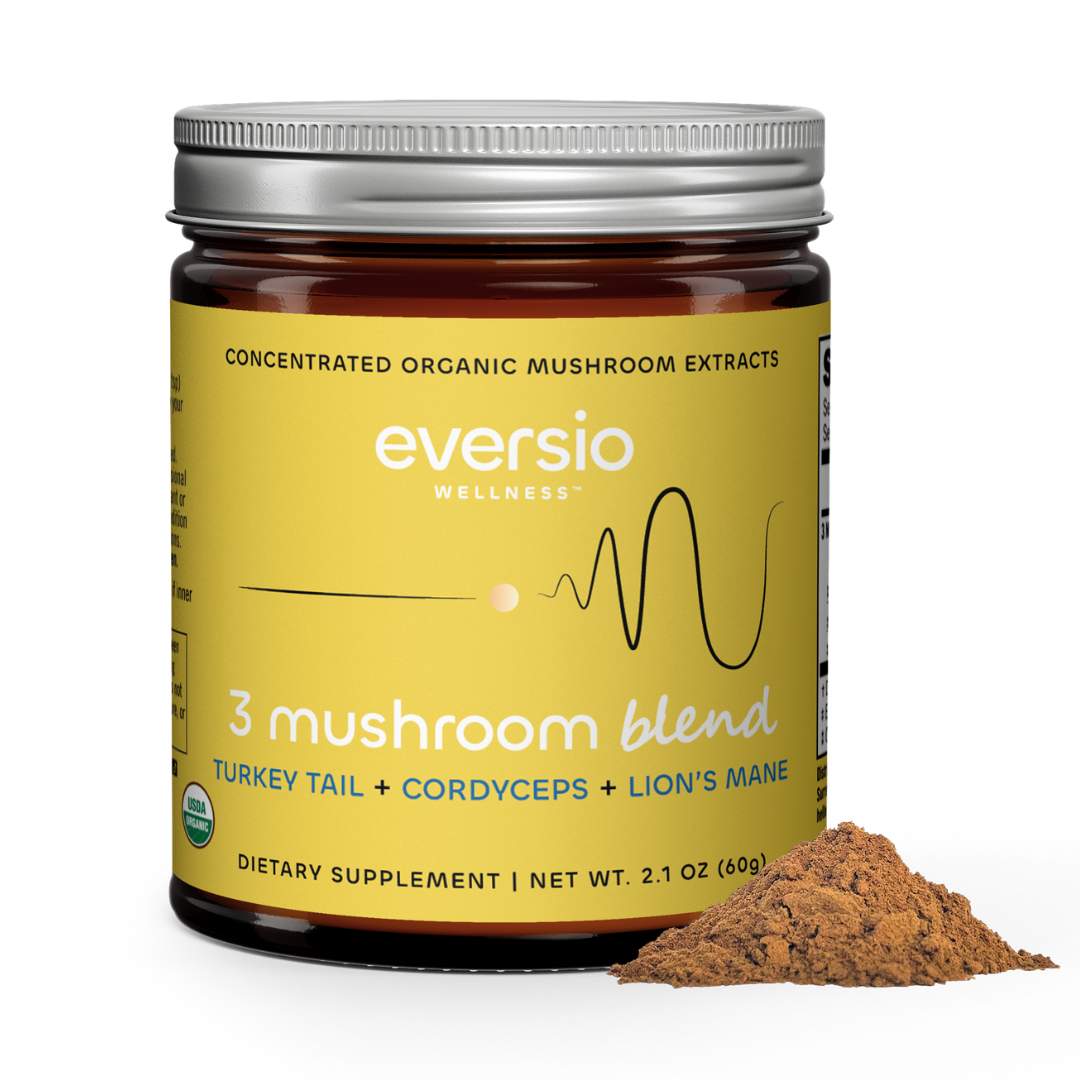
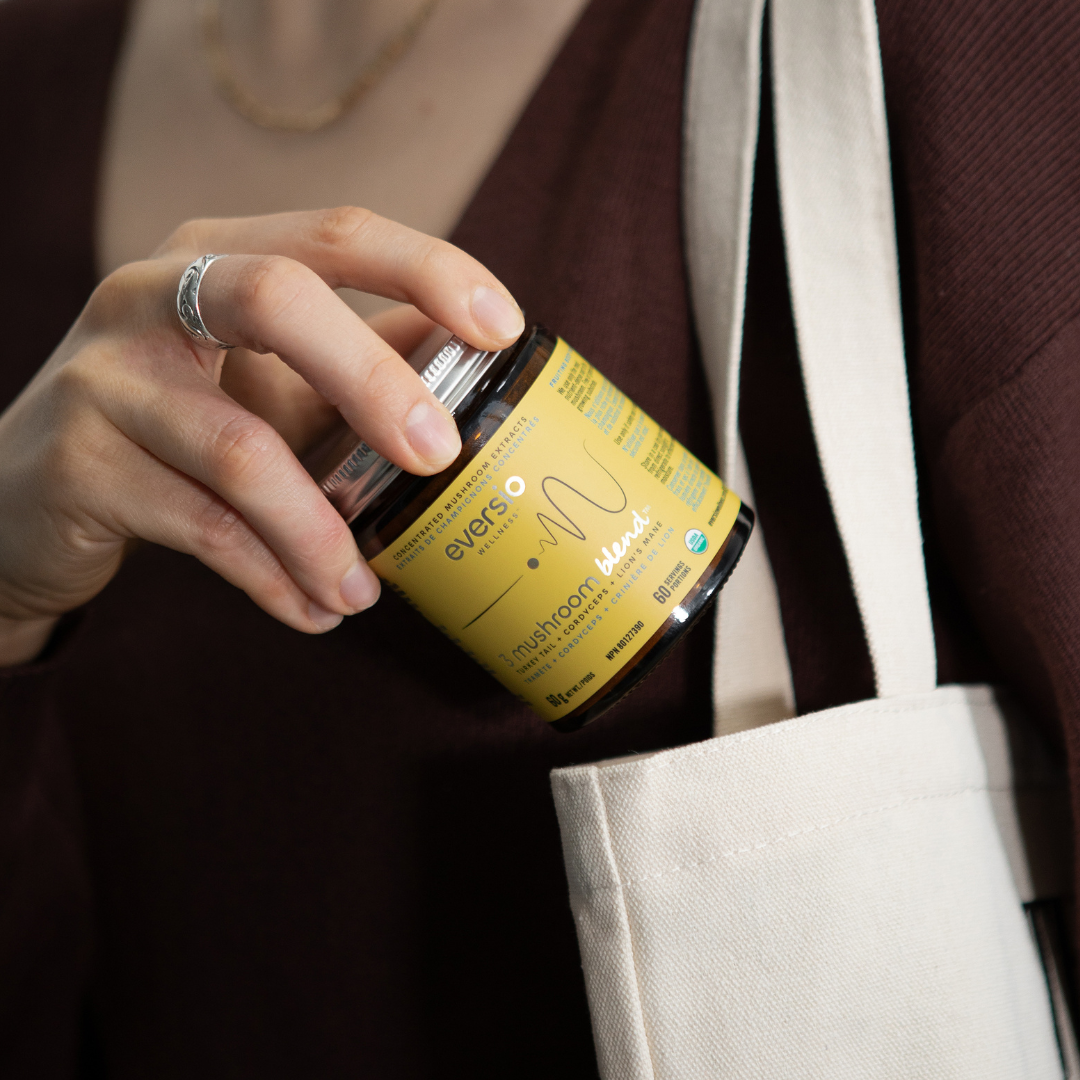

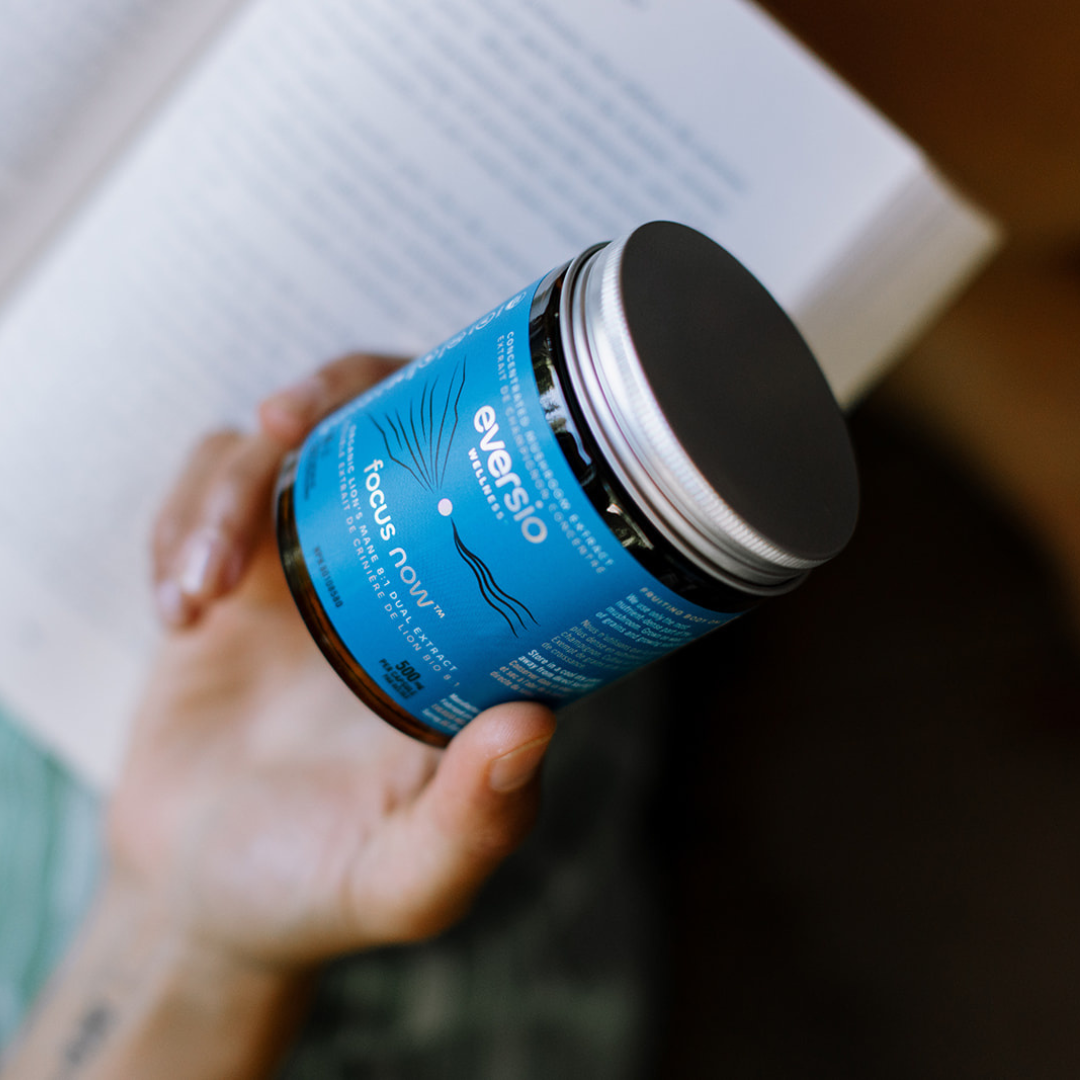
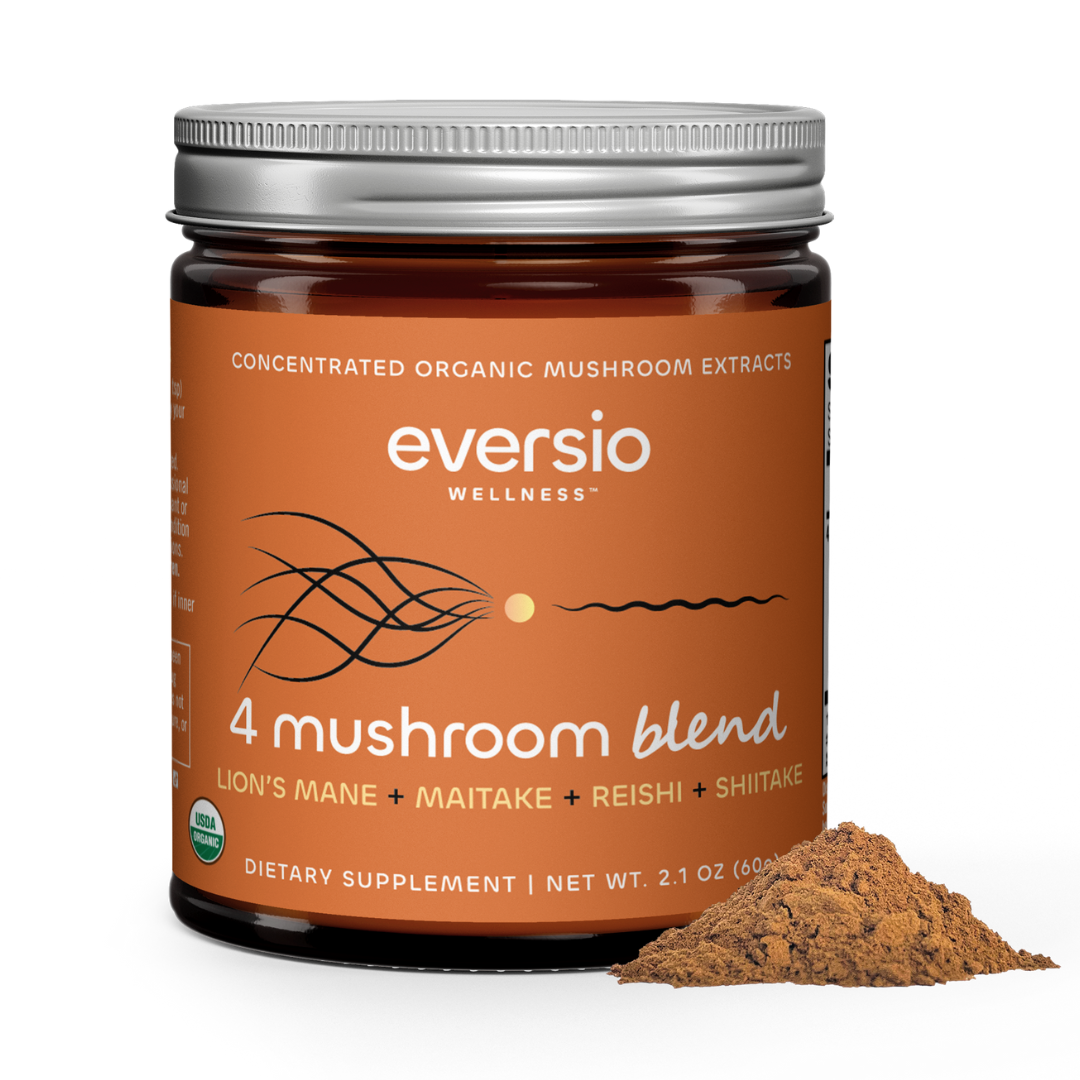

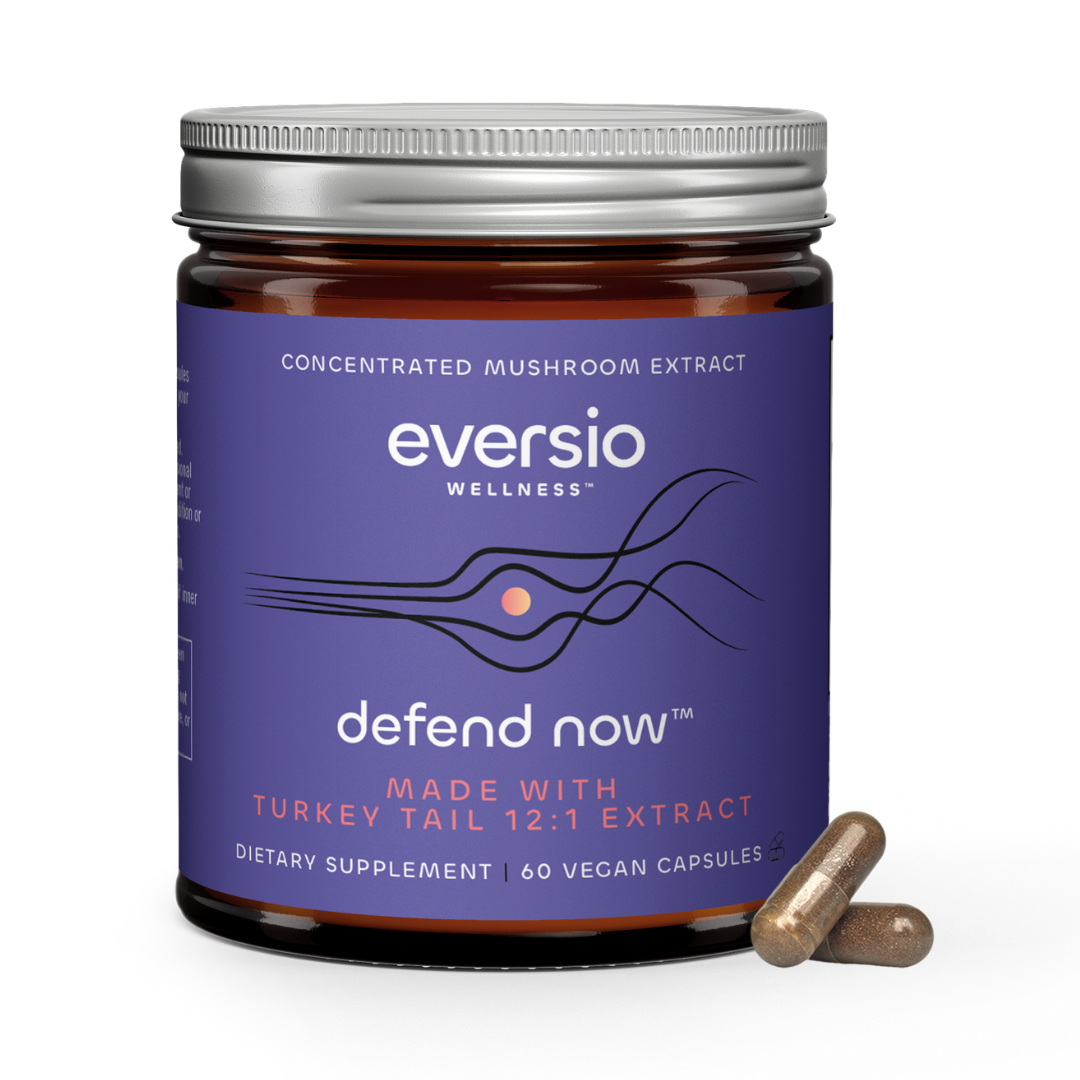
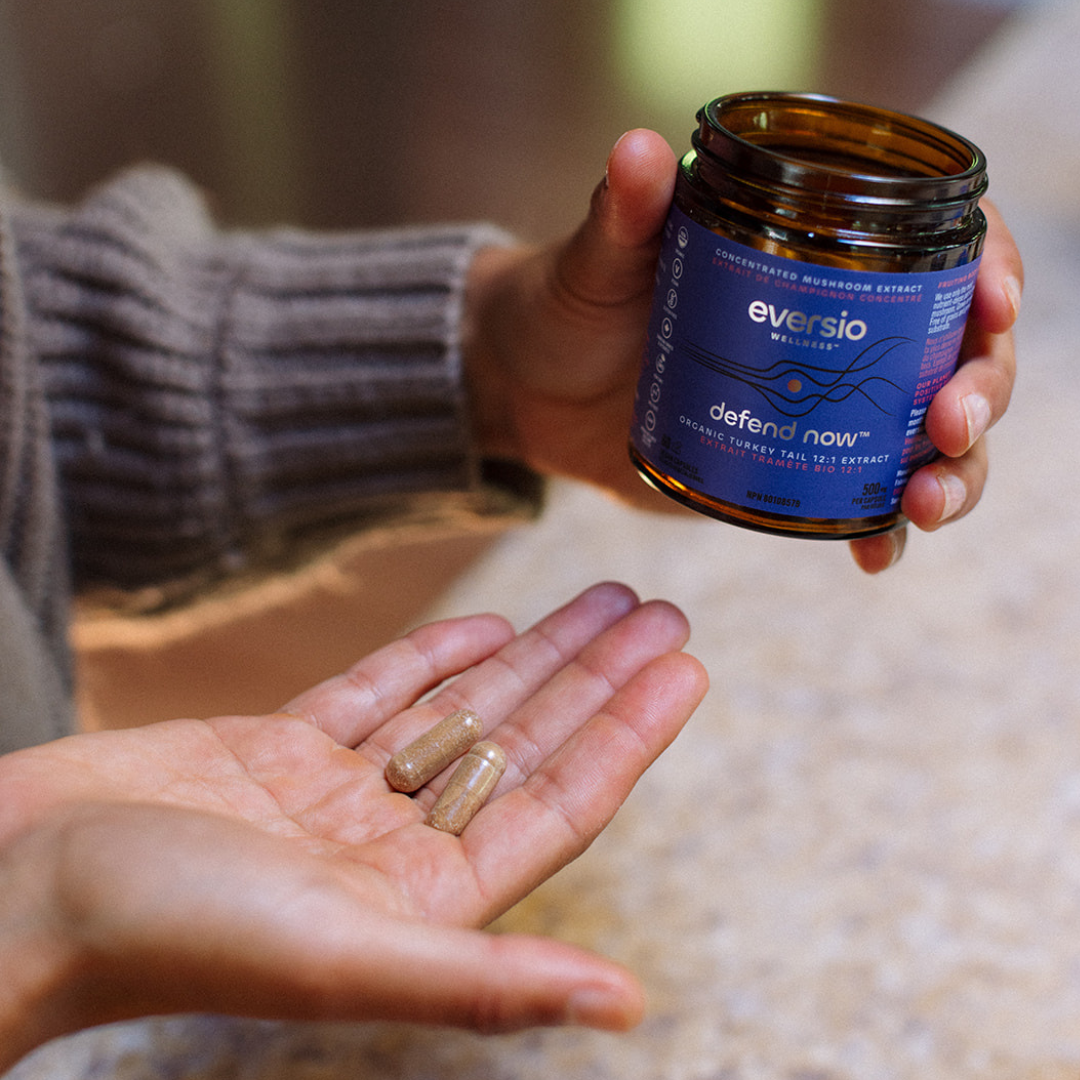
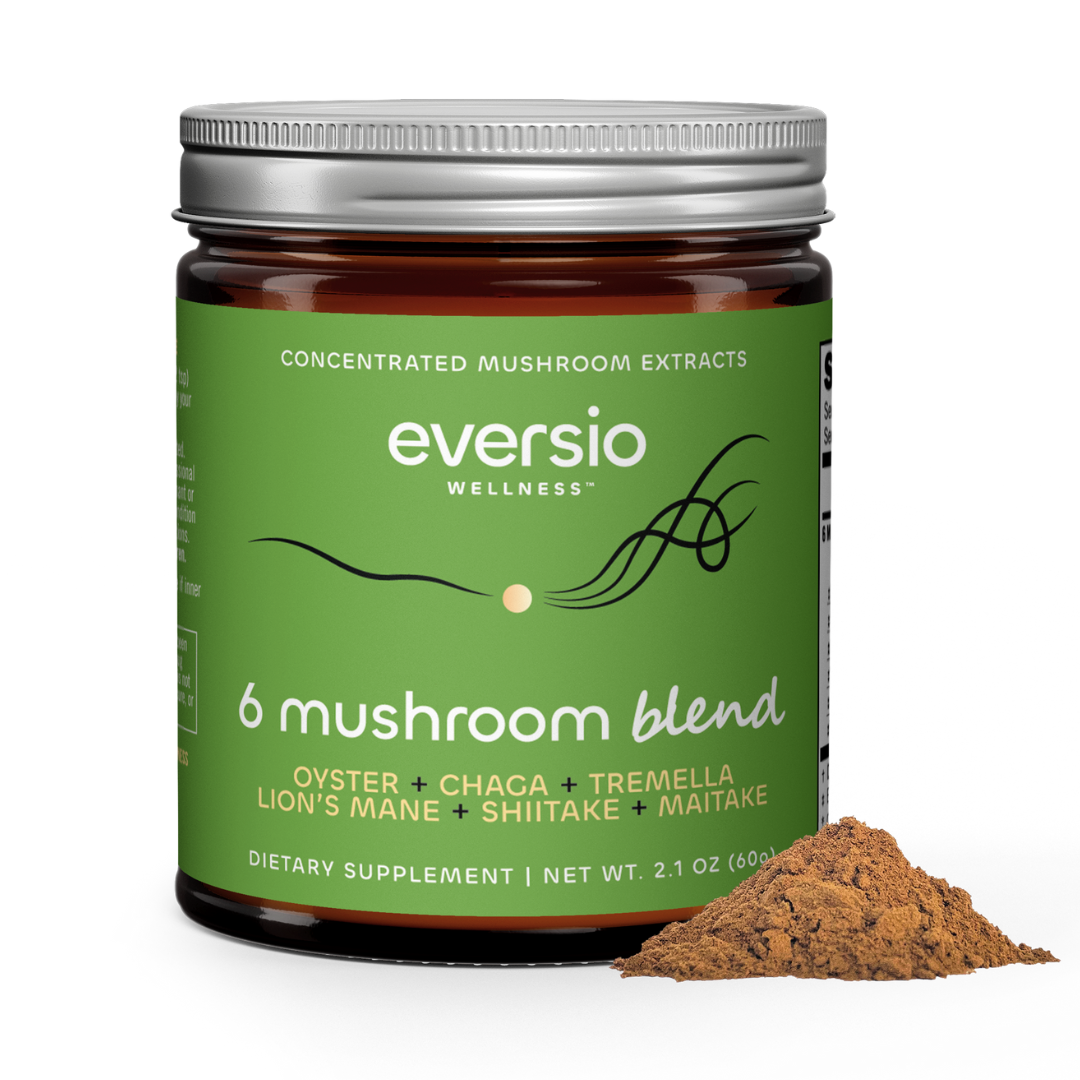
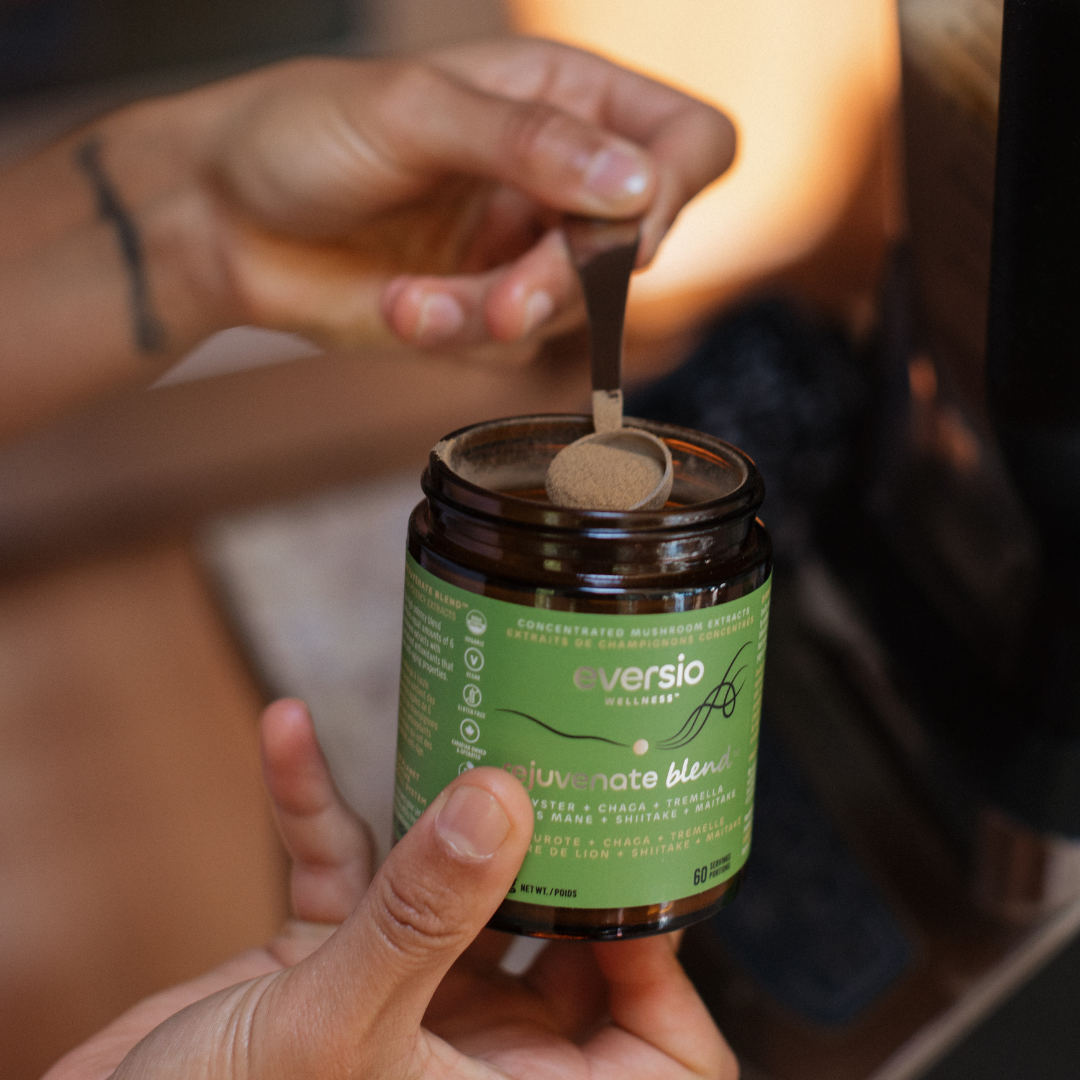
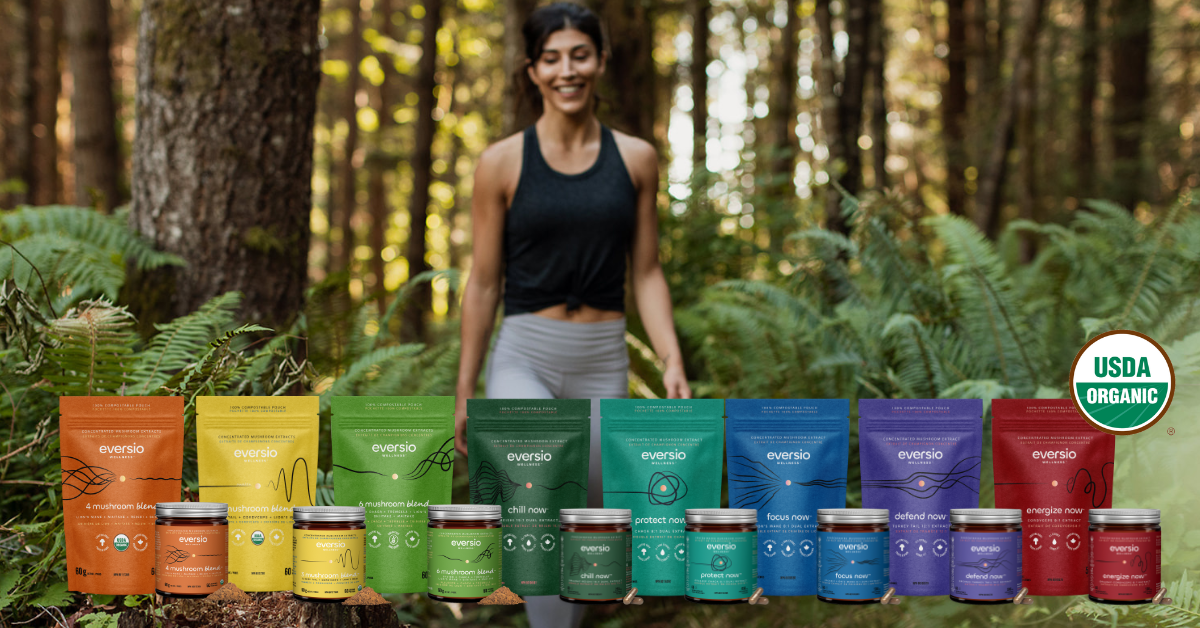
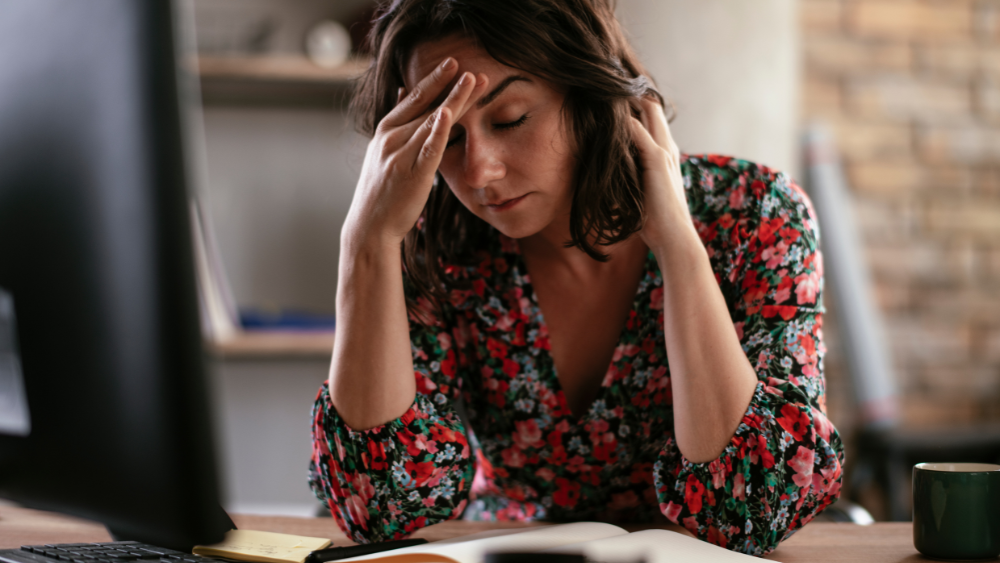
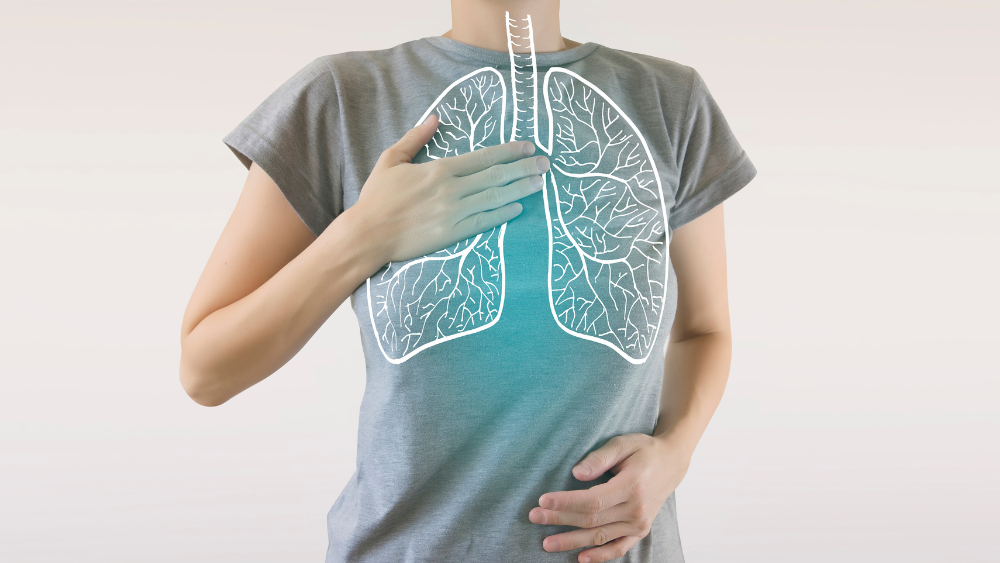





Leave a comment
All comments are moderated before being published.
This site is protected by hCaptcha and the hCaptcha Privacy Policy and Terms of Service apply.